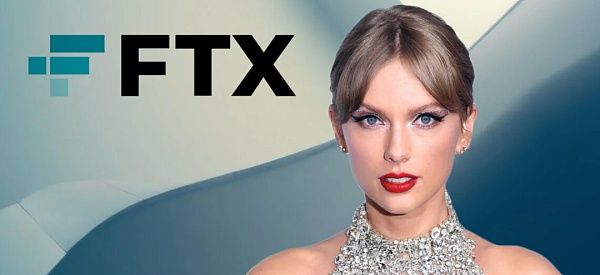Perspectives | Agreement as a coordinator of value minimization
A recent article by Flipside Crypto has this view: "No matter how they position themselves, decentralized networks, agreements, foundations, frameworks, cryptocurrency projects, in essence, is a business ; if They can't quickly change their minds and understand themselves according to this angle, then they will fail." This statement gave me a wake-up call.
I respect Flipside and their work on the “ Basic Password Asset Rating ”, but I am concerned that encouraging the agreement to be self-important is just as exclusive as destroying the meaning of the agreement.
The agreement provides the structure for business affairs, but not the business itself; the agreement is a system of logic that coordinates the transactions between the provider (businessman) of a service and the consumer. As the coordinator of the transaction, the less value the agreement draws, the better , and the business should be motivated to achieve value as much as possible (that is, profit, a business is valued according to its profit).
From this perspective, the protocol can be seen as a router for economic activity. Just as routers should be as lean and efficient as possible, so should the cryptographic currency protocol.
- The Libra Association will hold its first board meeting with up to 1,500 participating entities
- Joseph Lubin: How do you get to the decentralized internet?
- Intimidating + provocative, the giants left the story behind Libra
When coordinating transactions, the fewer an agreement is made, the more transactions can occur. Matt Ridley argues that “ the emergence of transactions allows humans to unleash the power of comparative advantage ” and the innovations and advances associated with them. To say this, coordinating transactions in society is a sacred thing.
To avoid misunderstandings, I would like to point out that minimization does not mean that cryptographic assets that capitalize on the agreement can only capture the least amount of value; if something is itself minimized, but in Assets used for coordination can capture significant value in production and consumption on a global scale.
In order to further study the properties of the agreement as a transaction coordinator, we will next study:
- protocol
- Supplier
- Distributor
- consumer
- market
protocol
The agreement encodes the participation rules of the transaction , which can coordinate a certain type of transaction for all suppliers and consumers.
Both the supplier and the consumer should strictly abide by the rules of participation; if they do not follow the rules, they will either not get the money (for the supplier) or the service (for the consumer). No producer, distributor or consumer can get special benefits. Equally equal to all those who interact with it, this equality is one of the driving forces for trading coordinators to be as efficient as possible (no space for corruption, use).
This strict implementation of the rules also means that the supplier and the consumer do not need to know each other, and because they do not understand each other, they do not have the right to recourse in real life (with this arrangement, things may become Chaos, inefficiency and expensive). Minimizing the basic layer of the production system also allows a wide range of services to be produced at the lowest price. If you bind recourse to the base layer, then everyone has to pay for it, not those who need it.
Although the agreement allows smooth transactions between suppliers and consumers, the logic of the agreement is nothing more than code, a code that has no feeling of so-called profitability . If you want to claim that the agreement is a business, then please show me the profit and loss statement of the Bitcoin agreement itself.
Supplier
The supplier (supply side) of the cryptographic asset network is the business .
The supply side includes miners, cartpers, voters, judges, transcoders, location providers, and providers of any network core services. Now, most of the protocols are working with the provider's machine network, but I expect that as blockchain technology matures, more and more protocols will turn to artificial networks (such as Lyft, Doordash, etc.).
These suppliers have a profit and loss statement and must focus on their profitability. If a supplier operates long-term and does not make money, they will close down. But this does not mean that the agreement will be dumped. Only when the last supplier goes offline because there is no profit, the agreement will be dumped. If no supplier can make money, it is most likely because the agreement is designed to be too bad, or they are providing a service that no one needs or has adequately supplied.
Over time, the suppliers of these agreements will become less profitable because they are connected to a Unicom global agreement, and suppliers that can produce services at the lowest cost can expel many inefficient competitors. .
In the short to medium term, the profit of the supplier may remain high, depending on whether they provide new services or existing services . If he offers a new service and there is no preconception about how much he should pay, then consumers can easily give too high a price in the process of finding accurate prices; and because the agreement often subsidizes inflation early. On the supply side, this will make things more obvious.
If the services available in the market are provided, but the production costs are much lower than the production costs in the non-blockchain field, the suppliers in the agreement can consume at a price far lower than that provided by the non-blockchain field. Attacks while still maintaining considerable revenue. Others may say that the early high yields are the risk benefits that suppliers receive as a blockchain world for crabs.
Distributor
The supplier can be considered to live under the agreement, resulting in a variety of services specified by the agreement; and the distributor can be considered to be on the agreement to distribute the services generated by the agreement to the consumer. Typically, distributors bind the services of the agreement and provide additional insurance and consumer protection.
Not all consumers need a distributor (technical can use the agreement directly), but I think that most consumers will access the services generated by the agreement through a well-trained distributor. For example, how many people save Bitcoin private keys themselves, and how many people save Bitcoins through distributors like Coinbase.
Just as the agreement does not set a threshold for suppliers, anyone who wants to be a distributor can do it at any time. Therefore, both suppliers and distributors must face market competition, unlike manufacturers and distributors who are qualified to obtain qualifications from a company. Competing markets can eliminate inefficiencies, drive down costs, and allow services coordinated by agreements to defeat services that are coordinated by companies and enhance consumer welfare (discussed in more detail below).
| Coordinated transactions by the company | a transaction facilitated by an agreement |
|---|---|
| Consumers have to pay more | Cheap |
| Selection of distributors by company | Market selection of distributors |
| Company (maximizing value) | Agreement (minimize the value) |
| Selection of producers by company | Market selection of suppliers |
consumer
The consumer (or demand side) of the blockchain network includes people who use and pay for the services provided by the agreement in various ways. They can pay through transaction fees, inflation, currency or any mechanism still to be invented. Some payment mechanisms will appear more secret (such as inflation), that is, consumers are more difficult to detect the cost, but they are all paid by consumers.
Consumers who interact directly with the agreement only need to pay the supplier, but consumers who use the service through the distributor must pay both the supplier and the distributor (as long as the combination of the two can provide new services or lower The price provides the old service).
The consumer's payment is the business income of the producer and distributor. Although a single consumer can set the gas limit and transaction fee for the transaction, it is actually the consumer's market that determines the accepted price range.
market
The market allows people to form a global consensus on the pricing of services and the value of online cryptographic assets.
In my memory, the pricing of protocol services has been controversial, dating back to Bitcoin's early “fee market” debate. This debate has spread to other communities because of the maturity of other items in the chain and the high prices that drive consumers away.
But at a minimum, the consumer's payment must be sufficient to cover the cost of the producer, and if a distributor is used, this part of the cost is added. If consumers value the service very high and the supply is insufficient, the consumer will bid to give a price that far exceeds the cost of the producer and distributor, making them a big profit. However, as we have said in the Suppliers and Distributors section, open markets will relentlessly thin their profits over time.
Let's talk about how the market evaluates cryptographic assets: valuations are basically based on governance, the supply of assets, and how suppliers obtain value (note: governance can change the other two variables).
This is a very deep topic, so I want to emphasize the simplest point: cryptographic assets are an incentive layer that binds producers, distributors, and consumers. While things that drive the value of cryptographic assets feel like a profit-driven business, if you look carefully enough, you'll find that they provide incentives to connect the profit-seeking business with consumers.
Considerations for investing in core developers
Perhaps the focus of Flipside has always been to emphasize that protocol developers need to come up with a way to earn money to support themselves. Relying on the assets held by the Foundation, how big is Jinshan, or will sit on the mountain. If the pool of funds has no way to be replenished on a regular basis, it will be unsustainable in the long run, no matter how high the price of the cryptographic asset is expected to fly (although the foundation may survive for decades).
However, building a business is not the only way for the core team to raise funds for development. We have seen a lot of experiments, such as inflation-funded (such as Decred and Zcash), and voluntary support (such as MolochDAO and Grin). I think that future experiments will raise capital around transaction cost funding or small-scale value dilution supported by the community.
in conclusion
Any unnecessary exploitation during the transaction process is a tax that will eventually be expelled from the “copy-and-paste” competition in the open source world. While this is a whole new world for business, minimizing the benefits will benefit all of our consumers.
(Finish)
Original link: https://www.placeholder.vc/blog/2019/10/6/protocols-as-minimally-extractive-coordinators Author: Chris Burniske Translation: A Sword
This article was authored by the original author to translate and republish EthFans.
(This article is from the EthFans of Ethereum fans, and it is strictly forbidden to reprint without the permission of the author.
We will continue to update Blocking; if you have any questions or suggestions, please contact us!
Was this article helpful?
93 out of 132 found this helpful
Related articles
- Observing | Creating a “blockchain + digital city” China sample: How is the “chain city” bottom?
- The head exchange spoiled, but who did not solve the Staking pain point?
- QKL123 market analysis | Today's altcoin currency is slightly stronger; related theme chain on the chain under the gambling (1014)
- Dai Data Growth Report (2019Q3): Dai usage peaked in August, with active addresses exceeding 100,000
- Seeing this is equal to the vitality and chaos of Devon5: ETH2.0
- imToken He Bin confirmed to attend the World Blockchain Conference · Wuzhen, he said that the wallet is the secret weapon of digital eternal life
- Xiao Zawan never imagined that the days of Libra’s “rebellion” came so fast.





